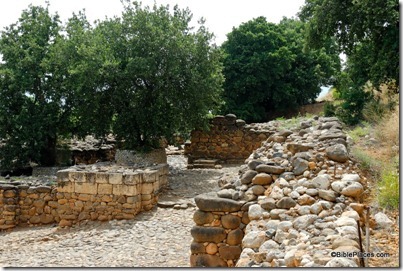Off the top of my head, I cannot think of more appealing places to excavate than the beach or Tel Dan. Summers can be hot in Israel and Jordan and instead of baking at Tel Rehov or Feinan, you can excavate at Ashkelon, with its cool ocean breezes, or at Tel Dan, a lush garden “which lacks nothing whatsoever” (Judg 18:7).
While the registration window is quickly closing for this season’s dig at Dan, there is still time to get in at the site where the famous Tel Dan Inscription was found and where the high place of Jeroboam still stands.
The official website lists the Goals of the 2012 season:
1. We will continue digging in Area B, into the early Iron Age levels (circa 1200-1000 BCE), to flesh out the architectural plans and to facilitate spatial analysis of houses and neighborhoods, to understand lifestyle, economy, social identity (ethnicity) and political organization. We are especially interested in retrieving carbonized grain from the Strata V and IVA destruction levels and to submit them for C14 dating (we have dates from wood, but the wood might already have been old when the town was destroyed).
2. We will continue digging in the new area in the center of the site, Area L, in the 8th cent. BCE levels destroyed in an earthquake. What does a town look, one minute before disaster strikes? How to people react to such a catastrophe? We will also be emphasizing “household archaeology” here. Is the earthquake mentioned in the book of Amos (Chapter 1)?
3. We will continue working in the area outside the city gate, Area A, in an attempt to date and understand the phantom gate of the Iron Age. Was it constructed in the 10th century BCE, the 9th century or even later? Will we find more pieces of the famous victory inscription of Tel Dan?
You can download an application here.
HT: Alexander Schick
